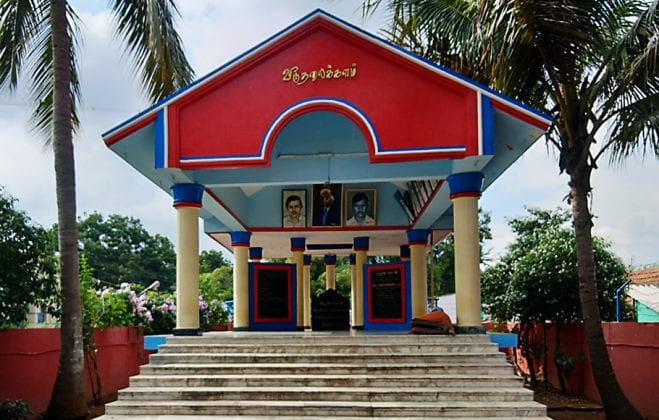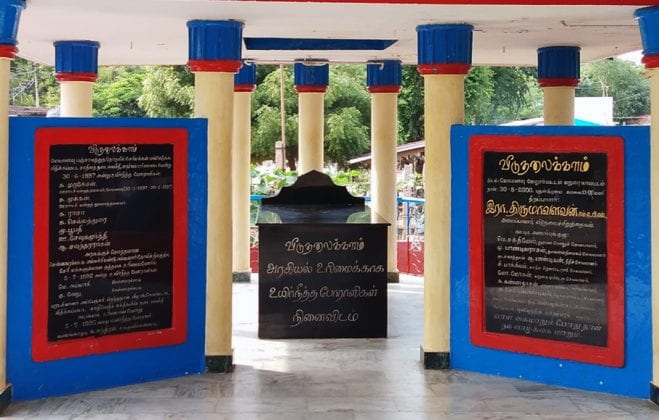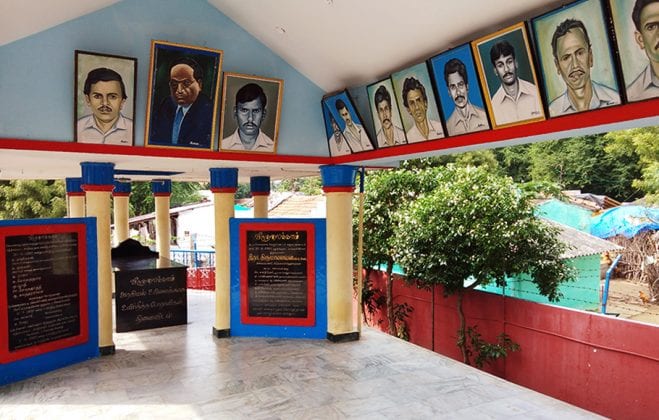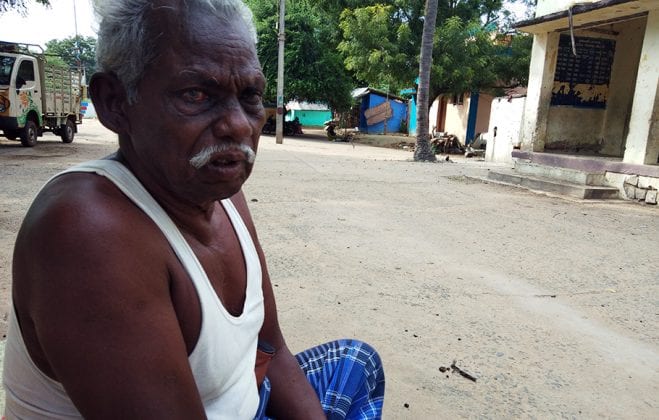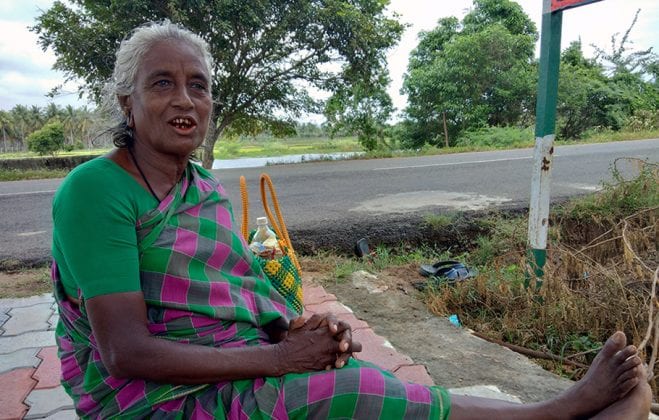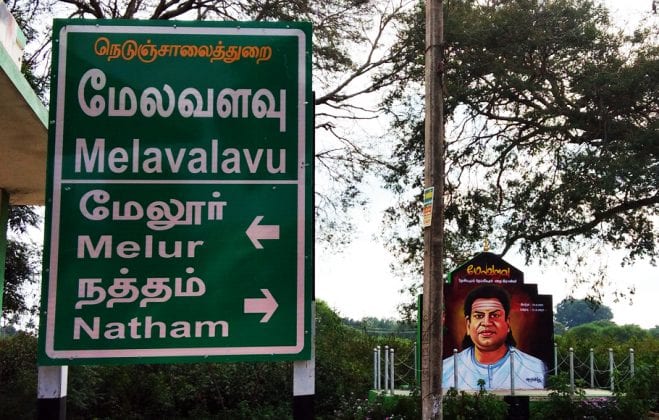
- Home
- News
- Analysis
- States
- Perspective
- Videos
- Education
- Entertainment
- Elections
- World Cup 2023
- Features
- Health
- Business
- Series
- Economy Series
- Earth Day
- Kashmir’s Frozen Turbulence
- India@75
- The legend of Ramjanmabhoomi
- Liberalisation@30
- How to tame a dragon
- Celebrating biodiversity
- Farm Matters
- 50 days of solitude
- Bringing Migrants Home
- Budget 2020
- Jharkhand Votes
- The Federal Investigates
- The Federal Impact
- Vanishing Sand
- Gandhi @ 150
- Andhra Today
- Field report
- Operation Gulmarg
- Pandemic @1 Mn in India
- The Federal Year-End
- The Zero Year
- Premium
- Science
- Brand studio
- Home
- NewsNews
- Analysis
- StatesStates
- PerspectivePerspective
- VideosVideos
- Entertainment
- ElectionsElections
- Sports
- Loading...
Sports - Features
- BusinessBusiness
- Premium
- Loading...
Premium
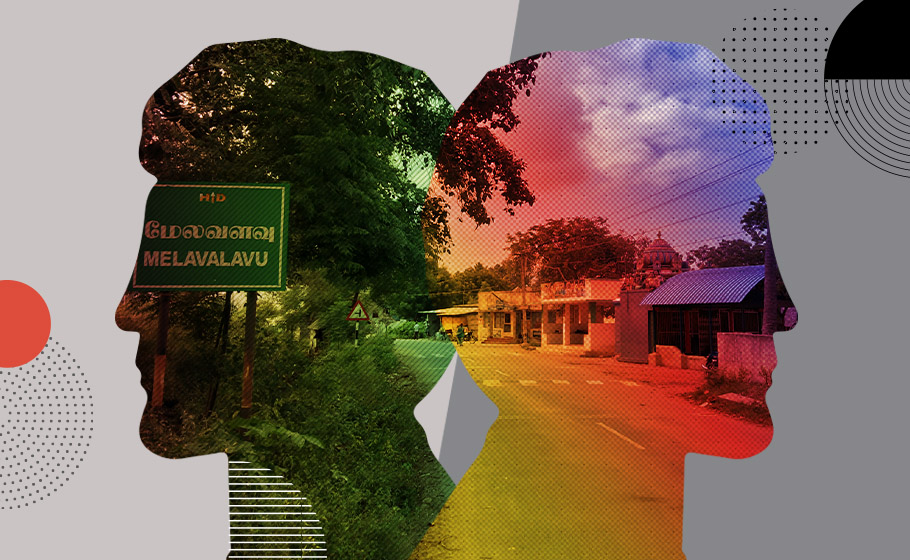
22 years after Melavalavu massacre, what has changed — and what hasn't

On a sunny November day, M Muthu (name changed) is busy tying haystacks on a piece of farmland owned by his caste Hindu employer. Exhausted after hours of back-breaking work since 7 in the morning, Muthu approaches a nearby house for a glass of water. When the woman of the house comes out with a pot of water, Muthu’s thirst gets the better of him and he lunges forward to grab the pot. He...
On a sunny November day, M Muthu (name changed) is busy tying haystacks on a piece of farmland owned by his caste Hindu employer. Exhausted after hours of back-breaking work since 7 in the morning, Muthu approaches a nearby house for a glass of water.
When the woman of the house comes out with a pot of water, Muthu’s thirst gets the better of him and he lunges forward to grab the pot. He is immediately “brought back to his senses” as the woman starts shouting. Muthu steps backwards and meekly cups his hands. The woman then starts pouring water from the pot into the air which eventually lands into his cupped hands.
Years of working under the hot sun and a ruthless caste system have taught Muthu to make his own compromises with destiny. The farm labourer from Tamil Nadu’s Melavalavu village in Madurai district has witnessed many such things in his lifetime, the scars of which he feels will haunt him in his next life as well.
Melavalavu is the same village where six Dalits were hacked to death on June 30, 1997 by caste Hindus following the election of a Dalit to the village council presidency.
The wounds of the violent incident have been once again ripped open after the Tamil Nadu government, as part of the MGR centenary celebrations, recently released 13 convicts serving life term in the case, citing good conduct.
The case
The Melavalavu panchayat comprises 18 villages in and around the region. Melavalavu village, however, is dominated by the people of Kallar caste (one of the three sub-caste of Devar or Thevar) — a powerful Other Backward Class (OBC) — while people like Muthu belonging to Parayar (Pariah), a Scheduled Caste (SC), are a minority in the village residing mostly in Ambedkar Nagar area.
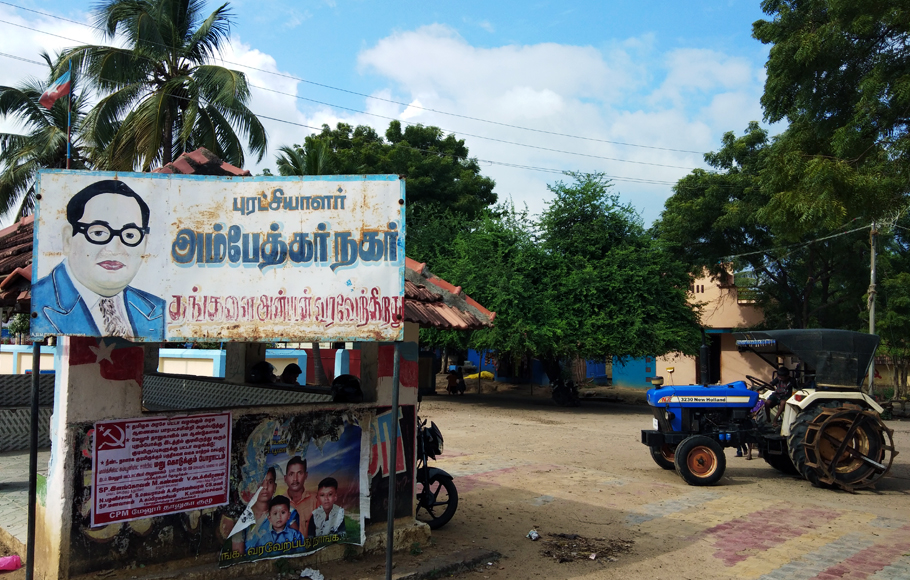
Back in June 1996, the hostility towards Dalits in Melavalavu increased after the panchayat was declared a reserved local body. Unhappy with the move, the caste Hindus allegedly unleashed a reign of terror to disrupt the polls. Even after the elections, Murugesan, who was elected the president, was not allowed to function. On June 30, 1997, four months after his election, when Murugesan and other functionaries of the panchayat, including the vice-president Mookan, were returning to their village from Madurai, the caste Hindus attacked the bus in which they were travelling. While Murugesan was beheaded, five others were also hacked to death. Many accounts from the time described the massacre scene as a field of blood with Murugesan’s head “flung into a well, half a kilometre away from the murder scene”.
Also read | TN’s Dalit panchayat heads empowered by law but crushed by caste
Although 40 people were initially named as accused, the trial court convicted 17 of them in 2001. However, one accused had died of snakebite during the period of trial. While 13 of them have been released recently, three other convicts were given remission in 2008.
Even after the conviction in the case, things had changed little. After the Melavalavu Panchayat seats fell vacant following the murder of Murugesan and five others and election was held, S Raja was elected the president. Five other Dalits were also elected as vice- president and ward members. “But even after the incident and the court verdict, we were not allowed to function as local body functionaries and couldn’t even enter the panchayat office since it was located in the caste Hindu street,” Kanjivanam, who was a ward member then, says.
The social and economic boycott has continued over the years. “In a way, with the murder of the Dalit men, they succeeded in terrorising the people here. Over the decades, nothing has changed in the village. In fact, ‘untouchability’ — the social and economic boycott of Dalits — has increased,” says M Koottakudiyan, a Dalit farm worker.
The discrimination continues
A stricter boycott was imposed early this year after the residents of Ambedkar Nagar refrained from attending the Karupanasamy temple function.
“We do not know when they will impose a social and economic boycott, it happens every now and then. The recent social boycott was lifted just a month ago, after the recent rains, as they need people to work in their fields,” says Koottakudiyan.
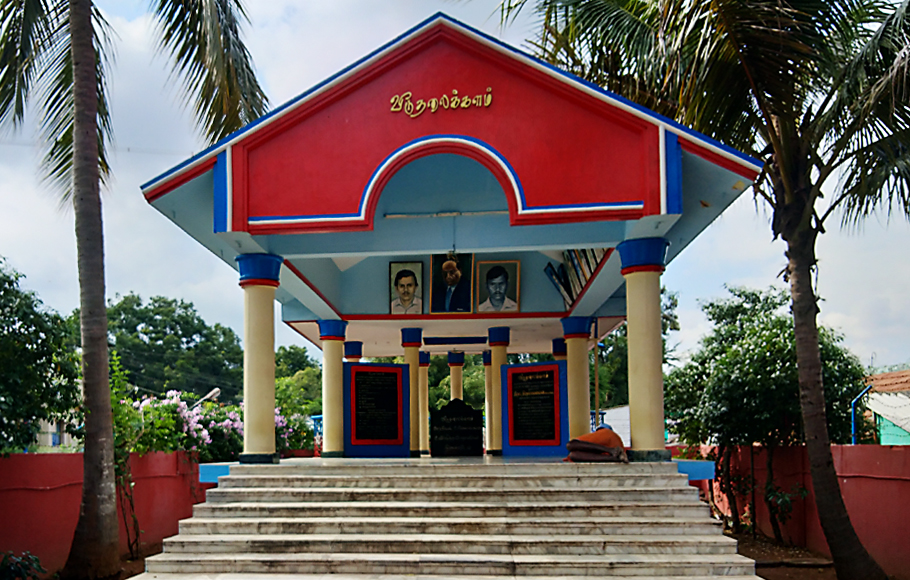
Explaining their reason for staying away from the temple function, village resident K Karthik says, “We knew we will not be allowed to perform anything in the temple anyway. Why should we go then?”
“Even when it’s our turn to sacrifice goats, we are not allowed to bring our goats and water or utensils to cook the meat as it is a common temple where the caste Hindus also eat. If we take water or other items to cook, caste Hindus do not eat the food,” Karthik shakes his head in disillusionment.
There are three temples in the village — Karupanasamy, Periya Nachi and Veerakaliamman — of which only Periya Nachi temple is exclusive to people belonging to another caste. The other two temples are common for all villagers.
“Even in these two temples, we are not allowed to enter. We can go only to the Karupanasamy temple,” Karthik claims.
Temple is not the only place where the Dalits of the Ambedkar Nagar feel violated. “From the tea stalls to police station, panchayat office, village streets and ponds, everywhere we are treated as untouchables,” says K Kanjivanam, a sanitary worker in the Melavalavu panchayat.
“Even in the tea shops, if people from our colony go, we will be given tea in separate tumblers or in paper cups while the caste Hindus would be served in glass tumblers. And even if the bench in the tea shop is free, we are forbidden from sitting on it,” Kanjivanam adds.
On the visibly divided streets, a few elderly men say they don’t remember walking around with slippers and a towel on their shoulders. “If we walk the streets or they happen to run into us anywhere in the village or even outside it, we must remove our towel from the shoulder and hold it in our hands in their honour. If not, we will be beaten black and blue,” says 65-year-old Machakalai.
“On top of it, in the bus that plies between Madurai and Natham, crossing our village, we are not supposed to sit. What if the caste Hindus don’t get a seat?” he adds.
Police bias
Ask him if they never felt like standing up for their rights and Machakalai unravels. “We did try to put up a fight against the caste Hindus on various occasions — to claim our right to the fishing ponds, the right to enter the temple and the right to sit on the bus. But it only ended in clashes. And every time we approached the police, they too turned against us,” says Manimaran.
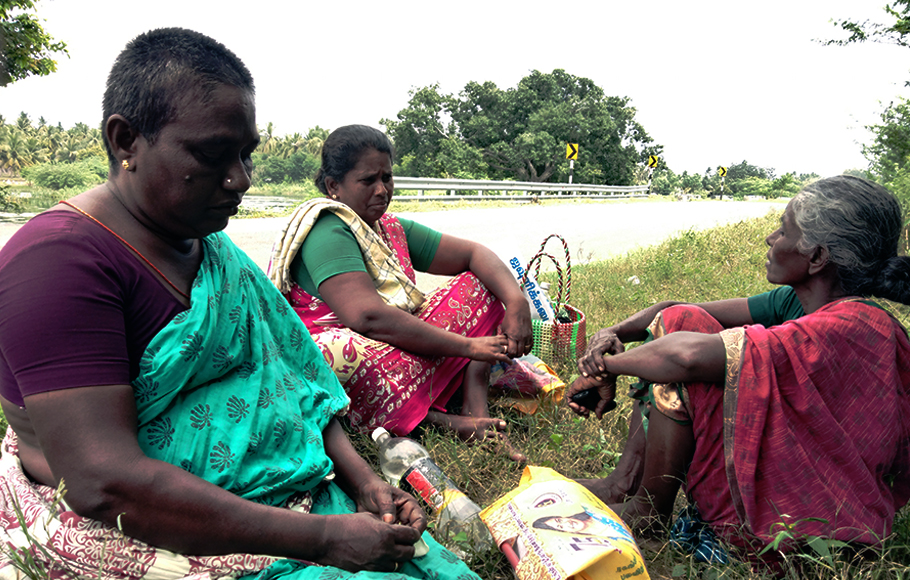
According to the villagers, when the educated among the Dalits question the authorities and the caste Hindus over the discrimination, they have to face the wrath of the police with false cases slapped against them.
“Our women can’t travel in the bus after 6pm; drunk men [caste Hindus] would often abuse and harass them. We filed a complaint against this once. But in return, the complainants — Karupaiya and Manimaran — were arrested on false charges,” says Kanjivanam.
The villagers feel most of these problems would have been solved long back had the police acted promptly and without bias.
Now, with the release of all the convicts in the 1997 murder case, the residents of Ambedkar Nagar feel it would only embolden the caste Hindus.
“Although we have been living under constant threats of social, economic boycotts and frequent abuses from the caste Hindus, they did not go to the extent of killing us, as they did in 1997. But now, with the release of the convicts, it would give them a free hand,” says S Nanmaran, a villager.
But caste Hindus in the village refuse to admit to the prejudices. Some of them claim “no one looks at the caste of people” anymore. They, however, fail to elaborate when asked about the prevalent practices of untouchability in the village.
The police too claim ignorance and maintain that “all is well”.
Dalit writer Stalin Rajangam feels it is a failure of the entire system, including the government and the political movements, which should have worked in the area to eradicate the discriminatory practices.
However, Tamil Nadu Untouchability Eradication Front state secretary K Samuel blames the landowners for keeping the caste system alive in order to exploit the poor Dalit labourers.
“Caste Hindus believe that it is only if Dalits are treated as lesser mortals, they [Dalits] will continue to obey them [caste Hindus] unquestioningly and work in their farms. So, they keep the caste system alive. It is more prevalent in areas where farming is a predominant occupation,” he says.
M Ellalan, the organising secretary of Viduthalai Chiruthaigal Katchi, a Tamil Nationalist political party, echoes Samuel and Stalin.
“Since Dalits are economically weak, they could not resist the oppression and fear for survival. So, only if they become socially and economically independent, they can resist more,” he says, adding that it took activists like him decades and various political movements just to make them understand this.
What the victims’ families say
While the villagers continue to face discrimination at the hands of the caste Hindus, the families of the Dalit men who were killed in 1997 are left to fend for themselves with little state or social support.
Each family was given ₹1.5 lakh as compensation under the Scheduled Castes and Scheduled Tribes (Prevention of Atrocities) Act and a government job.
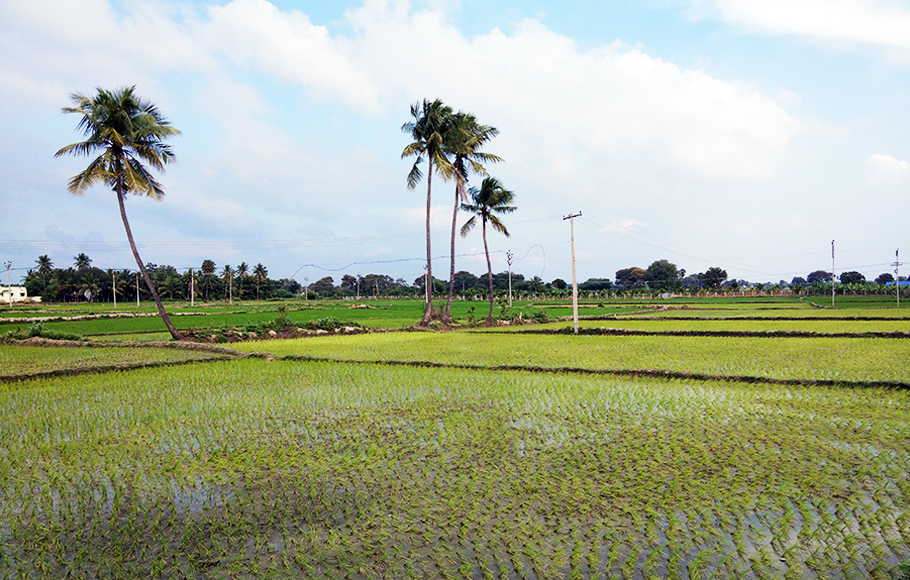
“However, the money that we received was enough only to repay the loans that we were made to believe were taken by our men. Now, we have to make ends meet by working on the roads in and around Melur town. Had my husband not fought for our rights, he would have been with me today,” says Chandra, wife of Soundararajan, who was one of the ward members killed by caste Hindus.
“Even though my son has completed school and my daughter has done MPhil, they were denied government jobs. Whenever we approached the local functionaries for a job, our case was not even considered as everyone knew my husband stood up against the Kallars,” says Chandra.
For Pachaiyamma, wife of Mookan, even though she doesn’t mind working for hours, she feels guilty of not having given life better for her children.
“While I managed to marry my daughter off outside the village, my two sons are still struggling for survival. No one is ready to give them a job in the village. Both of them go out of the village in search of odd jobs every day,” Pachaiyamma says, adding that even when her sons approach local politicians for lowly paid government jobs, they demand money, which she can’t pay.
Both Chandra and Pachaiyamma feel even though they don’t feel scared of the convicts who have been released recently, they do feel that this would set a wrong precedent for others in the village.
“Now, we do not talk to any of the caste Hindus in the village. We do not work with them anymore. But other residents of Ambedkar Nagar do work in their farmlands and houses. What if they again resort to a 1997-like violence? Only if they are made to serve the entire jail term that they deserve, other caste Hindus would think twice before committing such crimes,” says Kali, wife of Sevugamoorthi, another ward member.
Change in political discourse
Over the years, Melavalavu village has seen many changes, including the name of Ambedkar Nagar, but nothing seems to be enough to shake off caste.
The original name of Ambedkar Nagar, where Dalits reside, was Gandhi Nagar. “However, over a period of time, young men in our village changed it to Ambedkar Nagar. Though they explained the reason for it, we could not understand it much. But one thing we realised was, it was only Ambedkar who really worked for the eradication of the caste system and not Gandhi,” says Karandhan, Murugesan’s father-in-law.
While the Dalits embraced BR Ambedkar in the place of Gandhi, Kallars have embraced Muthuramalingam Thevar, a colleague of Subhas Chandra Bose.
According to Rajangam, initially it was the Congress party’s Harijan Sevak Sangh that worked among the Dalits and the caste Hindus against the prevalent practice of untouchability. “However, over the years, Dalit outfits have managed to create awareness about Ambedkar, as a result of which, the Dalits now feel Ambedkar is their real icon.”
While one can’t deny the work done by Gandhi against caste discrimination, Samuel feels he [Gandhi] did not seek to abolish the caste system. “After reading Ambedkar and Gandhi, Dalits have come to know the difference between working against caste discrimination and working against caste system itself. So, they have a reason to embrace Ambedkar.”
Incidentally, in 1938, Gandhi had come all the way to Devakottai near Melur to hold talks with caste Hindus and Dalits. As the legend goes, the caste Hindus refused to entertain Gandhi’s idea of an equal society and had shown him the door.
Tell this to Muthu, and he smiles. “These caste Hindus hold on to their privileges tight. They know even if they make the slightest concession, all privileges may seep through the cracks, just like the water that they pour into my cupped hands.”

